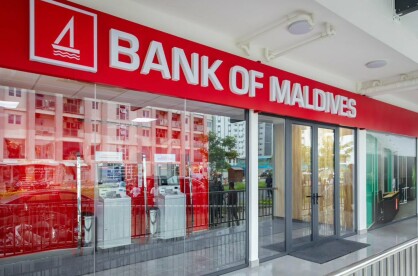The viability of crowdfunding
Crowdfunding is changing the game the world over and it could do wonders in the Maldives as well.

MFR Graphic
Crowdfunding is changing the game the world over and it could do wonders in the Maldives as well.

MFR Graphic
The concept of crowdfunding has been around for ages yet never given the full distinction it deserved until the past few decades. During and after the industrial revolution, most businesses and companies looked to a small, niche group of hyper-rich individuals and partners to gain capital funding, but now the rules have changed.
Business financing has always been a crucial aspect of any business, but it is also the most volatile one. Unlike inheritance and trust fund entrepreneurs, those with low initial capital have had to structure their ideas and products in a way as to snag their first customer, who is, for all intents and purposes, not exactly a customer but an investor, requiring the same approach as when selling to potential investor.
They needed to convince these potential investors enough to get them to part with their money, to build the business and then in time, profit from it as well, yet with so many competitive entrepreneurs, so many technological advances resulting in so many avenues of ideas, securing business financing from the elite or even investment companies becomes a competition in itself.
This obstacle requires not only a viable product, but elite salesmanship, in-depth knowledge of the economy and all that ties to their product — and also insight into what the financier would want to achieve by investing. These are not easy challenges for every newcomer. Sometimes, financing did not require a stranger across a table being convinced on the viability of one’s pitch; family members could finance and assist in building up the necessary capital, yet even then, the change that has been brought to the landscape by proper crowdfunding is unprecedented.
Crowdfunding, in short, is a method of raising capital through the collective efforts of friends, family, customers, and individual investors, yet there have not been clear-cut systems on how these investments should work, and what the rewards and incentives were to investing, until certain companies took it upon themselves to be the ‘middle-men’ in crowdfunding endeavours.
By veering away from investment firms, wealthy individuals, angel investors, and venture capital firms, crowdfunding allowed entrepreneurs to do what was the opposite of mainstream business financing.
Crowdfunding platforms, such as Kickstarter, GoFundMe, and Indiegogo, opened up an entire world of opportunities for these new businesses to grow. Instead of specific, meeting-based pitches, now entrepreneurs could prepare their entire plan, including a list of incentives, and post it via the crowdfunding platform website.
This allowed everyone with an internet connection to be reached and given the chance to invest in these ideas, receiving either pre-release merchandise, special benefits or loyalty prizes, before the product is even launched officially. Gone are the days when one needed to spend time sifting through lists of potential investors on their personal rosters.
Now, people do not need to invest thousands to play a part in the birth and growth of a company they were interested in; they could drop USD20 and get a free appreciative package alone with the product they invested in — the importance of the billionaires hoarding their wealth dependant on the failed idea of trickle-down economics is waning.
It is also important to note the immense successes, and the differences, of the existing, popular crowdfunding platforms to date.
Kickstarter, established in 2009, is one of the more strict and systematic platforms in operation. A platform that can only be used for creating projects that can be shared with others, Kickstarter has pledged more than USD5.7 billion since their inception, on over 200,000 projects. It is clearly the best place for an aspiring company to start off at, yet their stringent rules also prohibit a few incentives that might otherwise be available.
Kickstarter cannot be used to raise funds to donate to a charity or cause, projects cannot offer incentives like equity, revenue sharing, or investment opportunities, nor can any project involve the site's list of prohibited items such as "any item claiming to diagnose, cure, treat, or prevent an illness or condition," political fundraising, drugs or alcohol, or any contests, coupons, gambling, and raffles.
Indiegogo with their less restrictive rules, allow more flexibility, while giving the chance for backers to opt for the flexible or fixed models. Kickstarter only releases the funds to the client once the target is met, while Indiegogo allows tapping into the funds beforehand on a pre-designated agreement. It is interesting to note that Inidiegogo started off in 2007 as a crowdfunding platform for independent films, accepting projects from any category within an year of their launch.
Finally, looking at GoFundMe, one may find similarities to a practice that takes place in the Maldives. It is the largest crowdfunding platform, with over USD10 billion generated since 2010, and the main usage has been for individuals recovering, or needing assistance in, medical expenses, disaster recovery, and other, more personal endeavours. Here in the Maldives, we can draw a parallel to how crowdfunding has been taking place on social media to fund medical expenses for many with meagre means, and the success rate of these funding runs goes to show how susceptible the community is to providing support through these means.
Currently there is no official, monitored platform for crowdfunding in the Maldives, yet it is increasingly apparent there is support for such an idea. Affluent individuals are abundant, yet beyond charitable causes, investments are lacklustre, and so many startups and projects and innovations dry up before they are successful. Community empowered, community supported projects have always been successful in this small island nation, and this is one avenue in which the people can work together to lift up their economy, and hopefully, innovate and create, across the Maldives.



